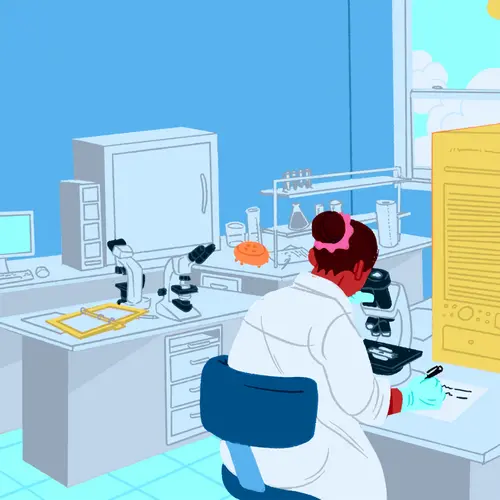If you have leiomyosarcoma that’s no longer in its early stages, your doctor may suggest that you join a clinical trial. In clinical trials, researchers test whether a new treatment, or a new way of using an existing treatment, is safe and effective.
Clinical trials are an option for many people with various types of cancer. A trial may particularly be of interest if other treatments like surgery, radiation, and chemotherapy don’t help or if a cancer is considered incurable.
Your doctor can help you look for clinical trials that might be an option for you -- and understand what’s involved.
Clinical Trials for Leiomyosarcoma
New clinical trials come up depending on what cancer researchers are working on. Some of the current ones for leiomyosarcoma are for a type of treatment called immunotherapy. The goal of immunotherapy is to prime your immune system to fight cancer.
Immunotherapy medications are already approved to treat several types of cancer, but not leiomyosarcoma. While immunotherapy makes a big difference in some people’s cancers, it doesn’t work for everyone, and it does have side effects. Scientists are working to find out what makes immunotherapy work in some people and what might help this type of medication work in more people.
Benefits
The biggest benefit of joining a clinical trial is the chance to try a new treatment for leiomyosarcoma that isn’t widely available. There’s no guarantee that the treatment used in a clinical trial will work for you. But if other FDA-approved treatments haven’t helped or aren’t an option, a clinical trial may offer hope.
Some or all of your cancer treatment costs may be covered by the trial, too. But you may still need to get other medical care apart from the trial, and the clinical trial may not cover that. Your insurance company cannot drop you from your insurance plan because you decide to take part in a clinical trial.
Drawbacks
Like all medications and therapies, those used in clinical trials can have side effects. And there’s no guarantee that the trial treatment will work well against your leiomyosarcoma.
Make sure you know what you can expect during the trial, including how long it will last. Sometimes clinical trials end early or abruptly, and you may or may not have an option to continue to take a trial medication after the trial ends.
The location may also matter. A clinical trial that’s a good fit for you may take place at a medical center or university far from your home. Find out if you’ll have to pay travel costs -- like transportation, food, and housing -- during the trial.
If you’re worried that you might get a placebo (an inactive treatment), you need to know that placebos are almost never used in cancer-related clinical trials. And if they are, the trial has to say so.
How to Find a Clinical Trial
Your doctor can help you find trials that might be a good fit for you. You can also search online using the U.S. government’s clinicaltrials.gov website.
For example, if you type in “leiomyosarcoma” into the “Condition or disease” field of clinicaltrials.gov, you’ll see a drop-down list of phrases such as “Leiomyosarcoma Uterus,” “Leiomyosarcoma Metastatic,” and “Leiomyosarcoma Recurrent.” Pick the one that applies to you and any other information, such the location you have in mind. Hit “Search” and you’ll get a trial-by-trial list that tells you the trial’s name, whether it’s recruiting patients, what type of patients the researchers are looking for, where it’s being held, and what’s being tested. It’s a lot of detailed information to take in, so don’t hesitate to ask your doctor for help.
What to Ask Your Doctor
Only you and your doctor can decide if a clinical trial should be part of your leiomyosarcoma treatment. If you find a trial that you want to sign up for, make sure you first talk to your doctor and the clinical trial team to find out:
- Am I a good fit for this trial?
- How would the trial help me?
- What are the risks and possible side effects from the trial treatment treatment(s)?
- Which doctors will I be working with? In a clinical trial, you may need to work with doctors who aren’t members of your original cancer care team.
- How long will the trial last? Most clinical trials only run for a certain amount of time.
- What happens if the clinical trial is discontinued, or if you need to stop treatment early?
- What costs will I need to cover? This includes health care outside of the trial and travel expenses.

